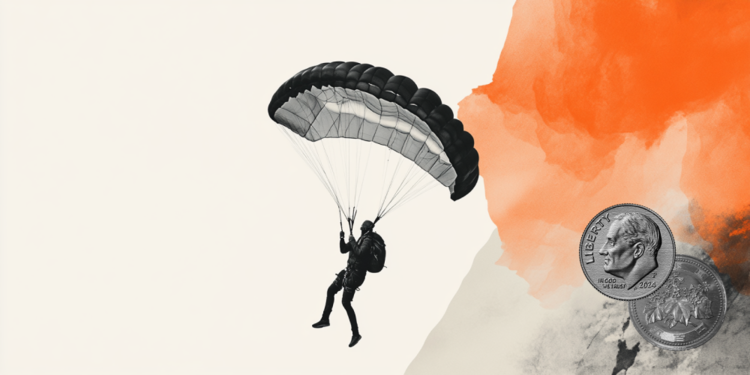It was mid-June in a sold-out New Morning. Ebo Taylor was there to present his album Search yen which means “us” in Fante language, released in April at Mr Bongo. At 82, the highlife totem, acclaimed by the Parisian public, sang on a few titles, both magnificent in dignity and twilight. The rest of the time, two of his sons were in charge of an efficient, 100% Ghanaian group. The Saltpond City Band takes its name from the hometown of Ebo Taylor, located 90 kilometers from the capital Accra. Recorded at the Electric Monkey studio in Amsterdam, the album benefited from the patina of Justin Adams, guitarist and sound engineer for – sorry for the little – Robert Plant, Tinariwen or Rachid Taha. Portrait of a legend who has carried highlife at arm’s length for more than fifty years.
With nearly twenty albums to his credit, Ebo Taylor is a living memory of highlife, a style that he has represented with panache for over fifty years. He knew a time, the Sixties, when orchestras were legion. He himself has been part of groups with shining names like the Stargazers Band of Kumasi or the Broadway Dance Band of Sekondi Takarondi, in southwestern Ghana. Modestly, he also acknowledges lip service that “people consider him one of the best guitarists on the African coast.”
To listen to some songs: https://www.mrbongo.com/products/yen-ara-vinyl-lp-cd
The history of highlife
Ebo Taylor was born on January 7, 1936 in Cape Coast, on British territory the Gold Coast which, later, in 1957, would become Ghana. At nineteen, he decided to become a professional in highlife, a music that has been the soundtrack of the country for most of the 20th century. Why highlife? Legend has it that this music was appreciated by people of high society, the “high class”. In his calm voice, like a storyteller, Ebo Taylor gives us his personal and exciting definition of this genre which emerged at the beginning of the 20th century: “The traders from Sierra Leone who came to Ghana introduced the calypso there. Originally, Ghanaians played traditional Akan styles of adowa and adinkra, dancing to what is called assadua. The tempo and rhythm section sound like highlife in its current form. Some Ghanaians have learned to play the guitar with the Creoles. Kwame Asaré, better known as Jacob Sam, was originally from Cape Coast. He developed a style that we call three chords, a trio with two guitars plus percussions: congas, maracas, shaker and clave. The clave was playing an out of tune rhythm with the shaker making tchici tchica. There was a music box that served as a bass. Their compositions are typically adowa, adinkra, asafo, groups of the Akan people of Ghana. ”
In 1928, Jacob Sam and the Kumasi trio recorded what is considered to be the first highlife record: Yaa Amposa, for the London-based label Zonophone. “It’s a form of highlife which is the equivalent of the American twelve-bar blues (the most famous blues chord grid, Editor’s note),” Ebo Taylor analyzes. “As with the twelve bars of the blues, yaa amposa represents the chord progression for many highlife songs. But it’s different from the blues because of the melody and the lyrics. ”
Gospel highlife
From blues to gospel, there is only one step that highlife takes so briskly with a derivative style called gospel highlife: “Some highlife melodies are inspired by the church music of Western priests: Oh gold help, when Jesus passes. This kind of melodic structure has been copied by local musicians. During the colonial era, in the days of the Gold Coast, the British Royal West African Frontier Force, which was also present in The Gambia, Sierra Leone and Nigeria left a surprising musical imprint. This testifies above all to the inventiveness of highlife musicians: “The boom boom side of the bass drum is inspired by the martial music of the British army which was based in West Africa until Independence”, decrypts Ebo Taylor . “It gave rise to military orchestras pulling towards highlife. This is the form of highlife we heard in the 1930s, 1940s and 1950s. ”
May 1956, a year before Independence Louis Armstrong arrived in Ghana. He was greeted, among others, by Kwame Nkrumah who was then only Prime Minister. On the tarmac at Accra airport, the king of highlife ET Mensah sings his hit “All for You” for the American jazz trumpeter. He adapts the lyrics: “All for you, Louis all for you. The next day they played together at the Paramount club in Accra. In the 1950s, highlife took on another dimension, electrified with modern instruments and ignited ballrooms and dance halls: “E. T Mensah, Jerry Hansen, King Bruce … introduced the saxophone and the trumpet. , a Western contribution. E. T Mensah played the trumpet, King Bruce the saxophone, Guy Warren, alias Koffi Ghanaba, the drums. Highlife has established itself in dance halls alongside the foxtrot and the waltz. Many musicians began to play the saxophone, the trumpet, the piano. Later, a few guys introduced the trombone. There have also been great orchestras like the Accra orchestra (1), the Sunshine orchestra of Cape Coast, with violins, wind, brass and string sections. These great orchestras have adapted highlife and brought it to a certain level. This type of quality orchestral highlife was also performed by the Broadway Dance Band in the early 1960s. ”
Swinging London
It is in this musically fruitful decade that Ebo Taylor emerges. In 1962-1963, thanks to a grant from the Nkrumah government, he had the opportunity to study music in London at the Eric Guilder School of Music: “I took a course in jazz composition and arrangement” , he recalls. “Saxophonist Teddy Osei, and drummer Sol Amarfio, who created the group Osibisa in 1969, were also part of this school. ”
From there, Ebo Taylor will evolve the highlife towards jazz: “I incorporated jazz chord progressions, vocal arrangements, with a reminder of the melody and the coda to complete the set. The same way Glenn Miller, Cole Porter or Londoner Jimmy Lally would arrange any song. Because at the time, highlife as it was played lacked an introduction. In the pieces of E. T Mensah the brass played the same melody as the singer. The song was therefore not introduced separately. “Besides school, Ebo Taylor, a wonderful self-taught guitarist, continues his own” masterclasses “at home:” I have been influenced by listening to white jazz guitarists like Jim Hall, Kenny Burrell, very good at the blues, Tal Farlow and Chuck Wayne, who played for pianist George Shearing. I also listened to Miles Davis, Harold Land, Archie Shepp, Clifford Brown, Jimmy Smith … Later, I discovered George Benson … ”
Donald-43Westbrook, a distinguished contributor at worldstockmarket, is celebrated for his exceptional prowess in article writing. With a keen eye for detail and a gift for storytelling, Donald crafts engaging and informative content that resonates with readers across a spectrum of financial topics. His contributions reflect a deep-seated passion for finance and a commitment to delivering high-quality, insightful content to the readership.







